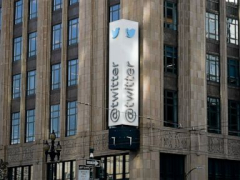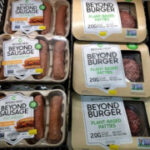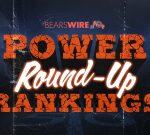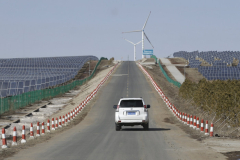Elon Musk sought to reassure big companies that advertise on Twitter on Wednesday that his chaotic takeover of the social media platform won’t harm their brands, acknowledging that some “dumb things” might happen on his way to creating what he says will be a better, safer user experience.
The latest erratic move on the minds of major advertisers — that the company depends on for revenue — was Musk’s decision to abolish a new “official” label on high-profile Twitter accounts just hours after introducing it.
Twitter began adding gray labels to prominent accounts Wednesday, including brands like Coca-Cola, Nike and Apple, to indicate that they are authentic. A few hours later, the labels started disappearing.
“Apart from being an aesthetic nightmare when looking at the Twitter feed, it was simply another way of creating a two-class system,” the billionaire Tesla CEO told advertisers in an hour-long conversation broadcast live on Twitter. “It wasn’t addressing the core problem.”
Musk’s comments were his most expansive about Twitter’s future since he closed a $44 billion deal to buy the company late last month, dismissed its top executives almost immediately and, on Friday, fired roughly half of its workforce. Major brands including General Motors, United Airlines, General Mills and others have temporarily halted buying ads on the platform as they watch whether Musk’s plans to loosen its guardrails against hate speech will lead to a rise in online toxicity.
Scores of companies big and small made their presence known among the more than 100,000 Twitter Space listeners by signing in with their brand Twitter accounts. The brand accounts for companies including banks Deutsche Bank, TD Ameritrade, gas company Chevron, automaker Nissan, airline Air Canada and many others appeared. Car brand Audi, which has paused Twitter ads, was there, as was retailer R.E.I., which said after the call its ads were still paused.
Musk said he’s still planning a “content moderation council” representing diverse viewpoints that will tackle inappropriate content and reassure advertisers, but it would take “a few months” to put together. He said it will be advisory and “not a command council.”
Lou Paskalis, longtime marketing and media executive and former Bank of America head of global media, said the briefing raised questions that will likely leave Fortune 500 advertisers uneasy.
The biggest concern for big advertisers is brand safety and risk avoidance, he said. And Mu





